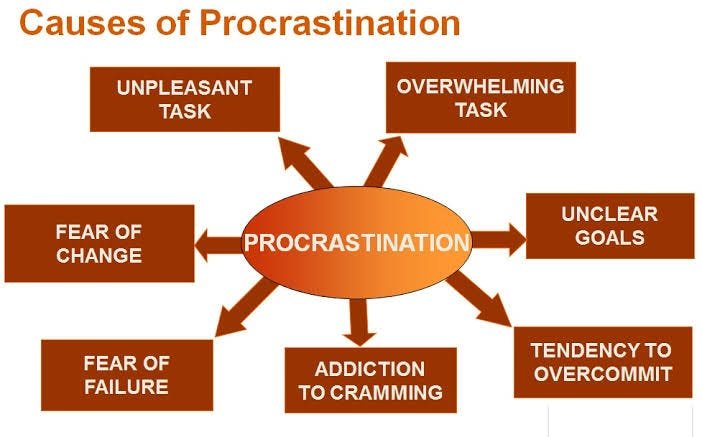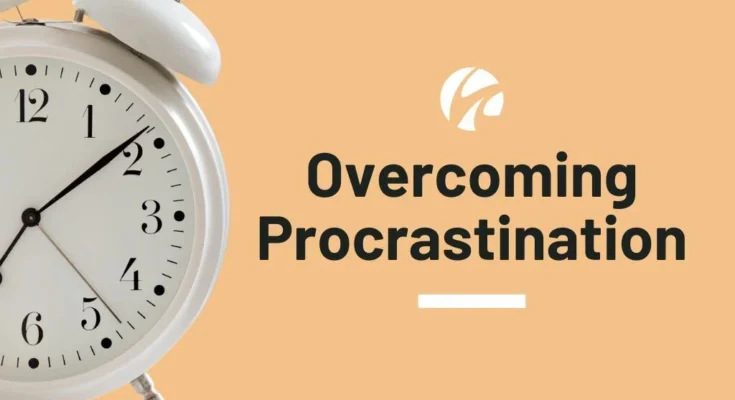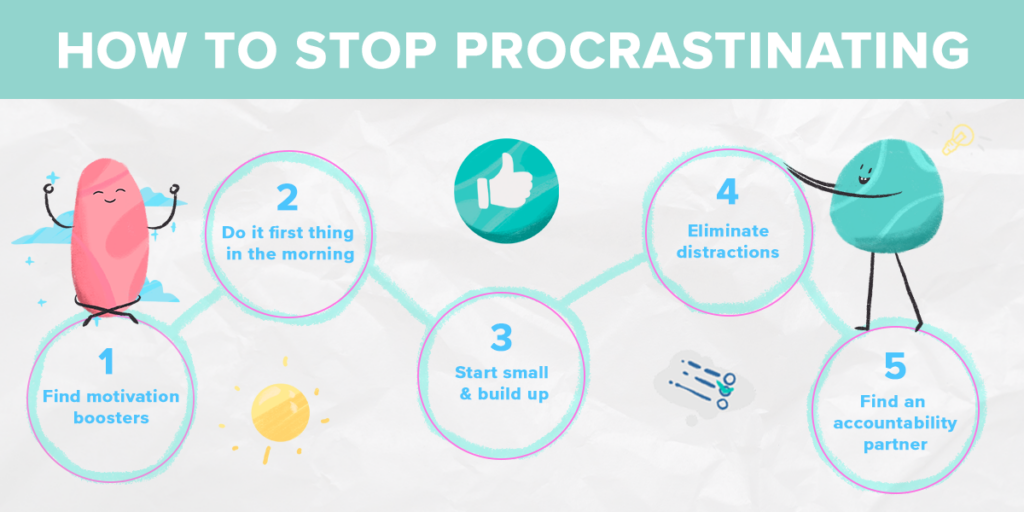Procrastination is a silent killer of productivity; there are so many examples around the world. It could be a student not wanting to finish an assignment, it could be a professional putting off work on a project, or an entrepreneur reluctant to take his first step. Just about everyone has some form of procrastination. To be successful, one must always battle with procrastination. If you know the reasons that make you delay or procrastinate, and take the right steps to correct these wrong moves of time wastage, your chance of that highest performance will directly skyrocket.
Understanding the root causes of procrastination
Procrastination is not procrastination because of ageing: it rather surfaced because of some deeper psychological and environmental causes. Some of the very significant causes of procrastination include:
Fear of Failure – Many people refrain from doing their tasks due to fear of making mistakes or the probability of failing.
Perfectionism – The stress of completing any task to perfection is the common reason for delay or procrastination.
Lack of Motivation – Tasks that seem less rewarding or less meaningful are simple ones overdue.
Poor Time Management – Without scheduling the tasks, they only pile up and stress leads to avoidance.
Pressure and Decision Fatigue – Tasks that seem complicated can be somewhat intimidating; rather, a person may delay out of the pressure of deciding which step to take and hence starts procrastinating.
Instant Gratification Bias – The human brain basically embraces instant pleasure as compared to long-term rewards. As such, distraction sneaks into your life, like socializing over Facebook and entertainment.

Their working strategies for beating procrastination
1. Break tasks into bite-sized steps
Because of their sizable nature, commencing big tasks can become unyielding. When a task is definably split into smaller workable parts, it becomes more manageable and achievable.
Use the Two-Minute Rule: If it takes less than two minutes, do it now.
Utilize the Pomodoro technique: Set the timer for 25 minutes, stay focused on a task, then take a five-minute break.
2. Set clear achievable goals and prioritize
Having clear and specific goals removes uncertainties and enhances productivity.
With the SMART goal-setting framework (Specific, Measurable, Achievable, Relevant, and Time-bound), set up effective goals.
Use the Eisenhower Matrix to prioritize tasks into urgent versus important.
3. Make your environment productive
Your surroundings are crucial factors in focus and efficiency.
A distraction-free workspace-leaving out noise and clutter.
Productivity tools like Trello, Notion, or Todoist keep you organized.
Put your phone on silent or use website blockers to curb distractions.
4. Establish a routine
Routines help build discipline and reduce decision fatigue.
Make a daily schedule for work, exercise, or leisure pursuits to build consistency.
Apply habit stacking: attach a new habit to an existing one so that you can slip it into your life more easily.
5. Stop perfectionism and fear of failing
The very fear of not reaching such high standards often leads to procrastination.
Change your mind into thinking about the progress rather than perfection.
Apply the 80/20 rule from the Pareto principle: 80% of the rewards come from 20% effort.
Believe that mistakes are part of the learning process and growth.
6. Make Yourself Accountable
Accountability increases how committed a person feels to getting something done.
- Find yourself an accountability partner-or a few and become part of a productivity group.
- A public commitment to deadlines makes it more likely for them to be honored.
- Make use of apps such as rescue time or focus will to log and analyze time usage tasks.
7. Reward Yourself for Each Completed Task
Small rewards are an added motivation through positive reinforcement.
- Reward yourself for reaching milestones on a self-imposed reward system.
- Use video game techniques of keeping track and encouraging streaks to keep yourself motivated.
- Small celebrations of items on the to-do list can build momentum.
The Science Behind Overcoming Procrastination
1. The Psychology of Procrastination
Research shows that procrastination is closely associated with the brain’s limbic system, which often emphasizes immediate gratification instead of long-term reward. Since the prefrontal cortex is responsible for impulse control and decision-making, it is useful to strengthen self-regulatory skills to reduce the likelihood of procrastination.
2. The Dopamine Link to Productivity
Dopamine is linked to pleasure and motivation, and that plays an important role in positive procrastination. When a task feels ‘not enjoyable,’ dopamine levels decrease, thus increasing the chance of taking a distraction. With this in mind:
- Break tasks down into small, bite-sized pieces that are fun to perform.
- Reaching mini-goals releases dopamine that encourages continued work.
- If it’s hard for you to work, use music or background sounds that facilitate focus like classical and instrumental tracks.
3. Stress and Procrastination
Stress-induced avoidance behavior is prevalent. It helps tackle the stress through meditation, exercises, and deep breathing to speed up focus and enhance productivity.

The Long-Term Benefits of Beating Procrastination
Among the many advantages of overcoming procrastination is the increased productivity that leads to a lot of free time and less stress.
Better Mental Health– Elimination of the problem seems to lessen anxiety and raise self-tailored confidence.
More Career Success– Fast-paced sustainable productivity will grow the need for professional development and credibility.
Better work-life balance– It frees the schedule to have more time for friends, family, leisure activities, or indeed any personal life commitments.
Final Thoughts: Act Now
Procrastination is a behavior that can be unlearned by deliberate practice, just like any habit. Execute each of these evidence-based strategies that would help you get focused, become productive, and best utilize your time. Remember that the only way to tackle procrastination today is to start now, no matter how small the step. Thank yourself tomorrow for this.





